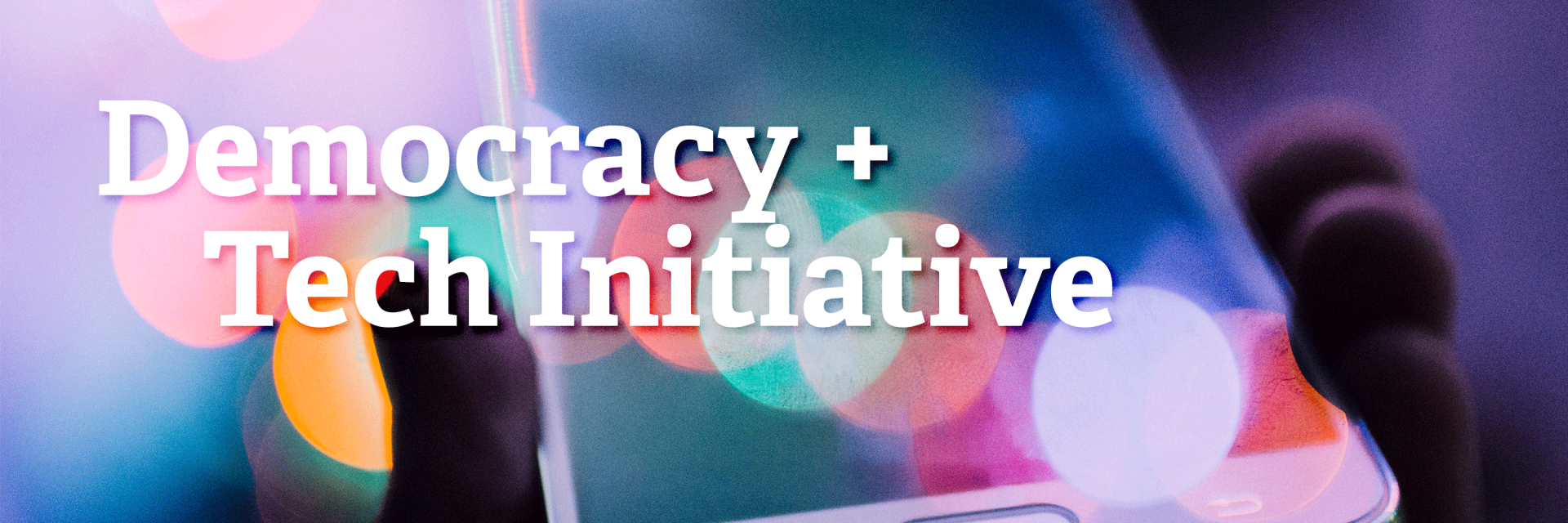
The Democracy + Tech Initiative creates policy practices that align global stakeholders toward tech and governance that reinforces, rather than undermines, open societies. It builds on the DFRLab’s established track record and leadership in the open-source field, empowering global communities to promote transparency and accountability online and around the world. The Initiative examines how the tech that connects and informs people is funded, built, and governed, and how that affects the viability of rights-respecting and democratic societies around the world.
Connective technologies are ubiquitous in modern life, and the ways in which governments use, promote, and regulate them is central to the global order. As many nations embrace an increasingly forceful authoritarian approach to these issues, the need for a powerful, coherent, and actionable democratic approach has never been greater.
The Democracy + Tech Initiative is designed to:
- Center human rights and democracy in tech and policy debates;
- Shape what happens next by looking beyond the current tech and democracy flash points;
- Ensure decisions about global tech include equities and stakeholders around the world;
- Connect and align siloed communities and issues in government, industry, and civil society; and
- Elevate a new generation of diverse leaders with crosscutting expertise to shape policy and industry outcomes.
Leadership
Staff
Nonresident fellows

The Democracy + Tech Initiative is supported by a world class cohort of nonresident fellows with crosscutting expertise, all dedicated to the mission of ensuring a more equitable and rights-respecting world. They are the embodiment of the Initiative’s approach, driving insight and action from a combined community of leaders representing the experience and sectors required to create change. They include AI experts, human rights advocates, scholars on China, former government officials and diplomats, leaders in companies seeking to address online harms, and former tech executives.
Related publications
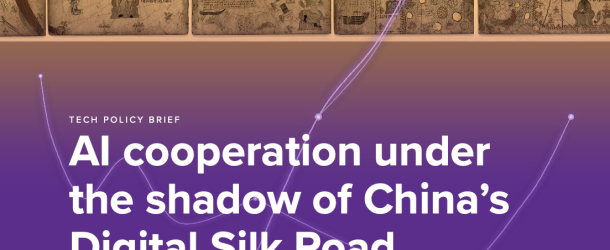
AI cooperation under the shadow of China’s Digital Silk Road
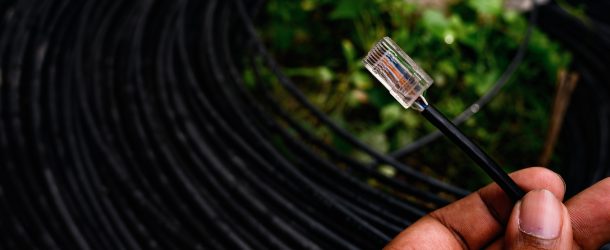
DFC reauthorization is here: The good, the bad, and the next steps for connectivity

Shaping the Road to the AI Impact Summit in India

Analysis: China’s bid to rewrite the internet’s DNA
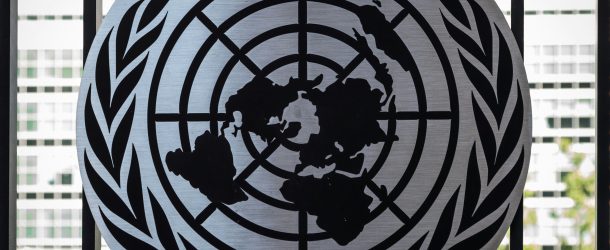
‘The multistakeholder model is the engine that powers the internet’ —Konstantinos Komaitis on WSIS+20
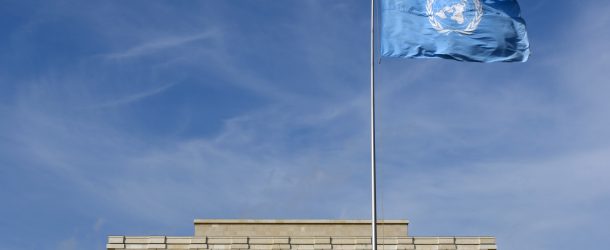
Konstantinos Komaitis’ statement to the UN Informal Interactive WSIS stakeholder consultation
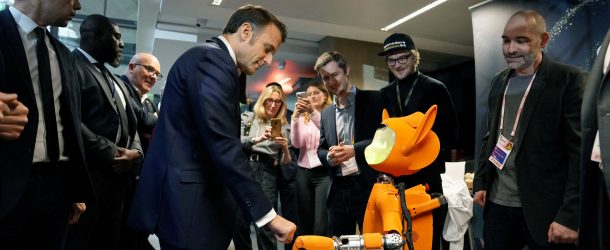
Analysis: At the AI Action Summit, bragging rights for hosts but limited opportunities for stakeholders
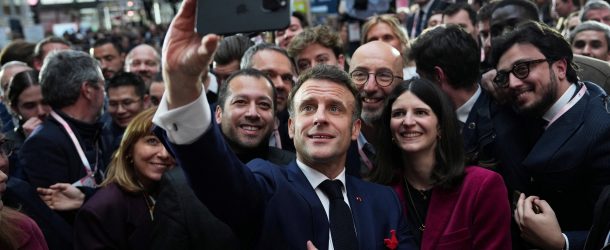
Analysis: AI Summit emphasizes innovation and competition over trust and safety

National Security Memorandum (NSM) on Artificial Intelligence: Democracy + Tech Initiative Markup
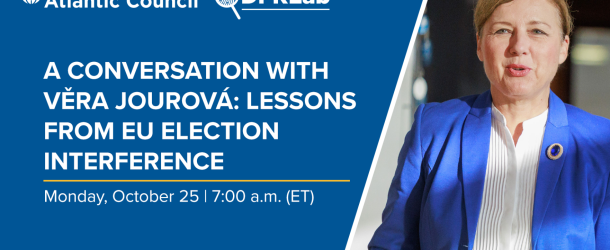
A Conversation with Věra Jourová: Lessons from EU Election Interference
Related events
Elections Everywhere All At Once
The DFRLab hosts a discussion on the landscape of international elections, how tech platforms are preparing for them, and what to expect over the next year.
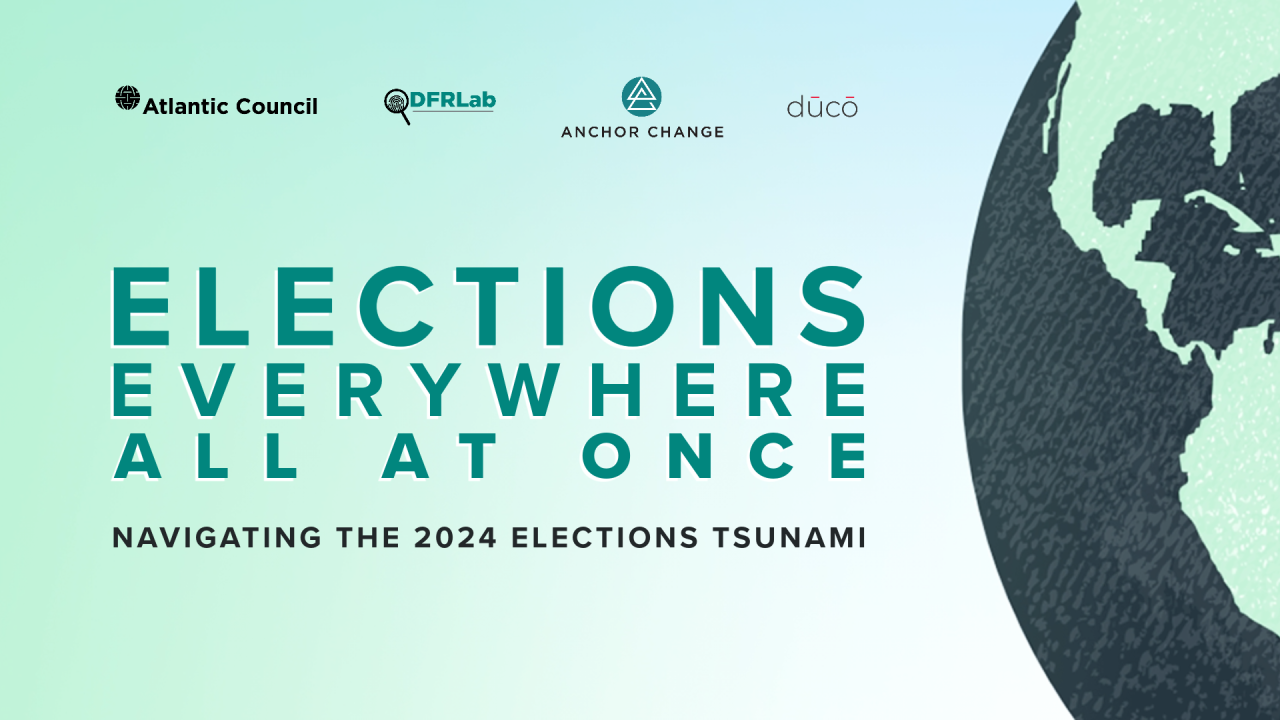
Report Launch: Scaling Trust on the Web
The DFRLab hosts a launch event for the Task Force for a Trustworthy Future Web’s comprehensive report.
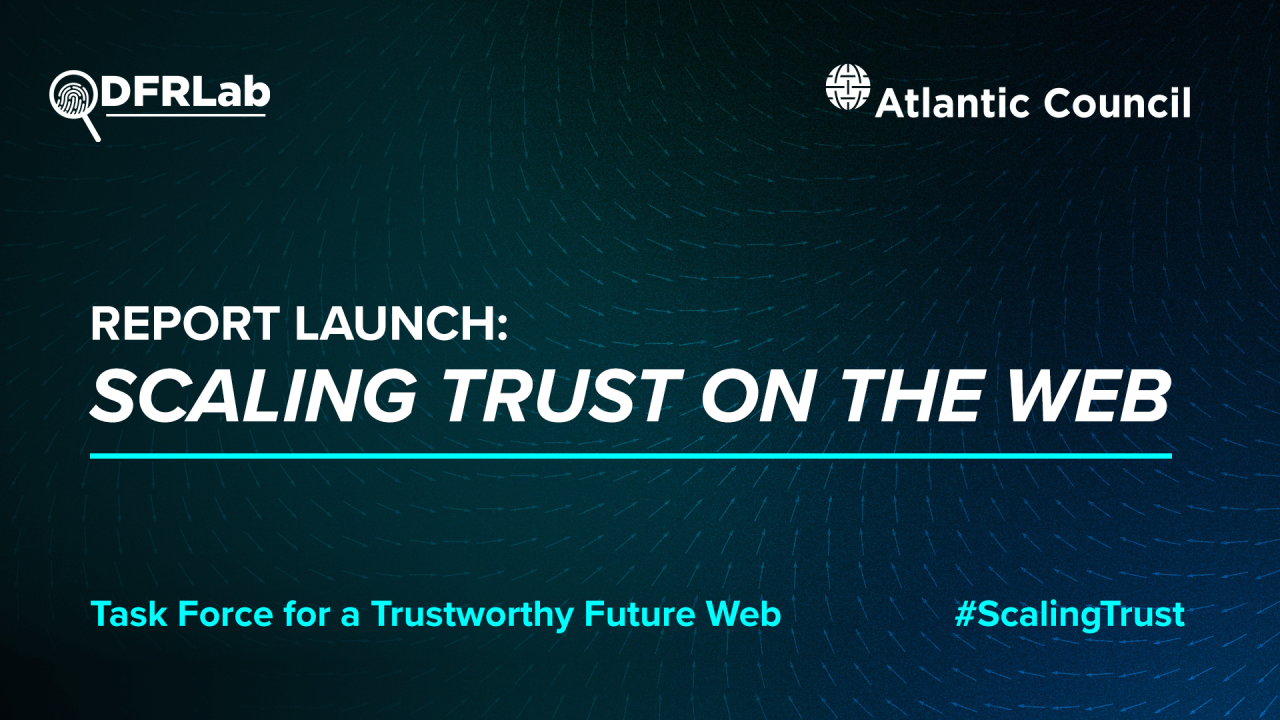
360/Open Summit: Around the World
The DFRLab hosts its annual 360/Open Summit at RightsCon Costa Rica and the Riga StratCom Dialogue.
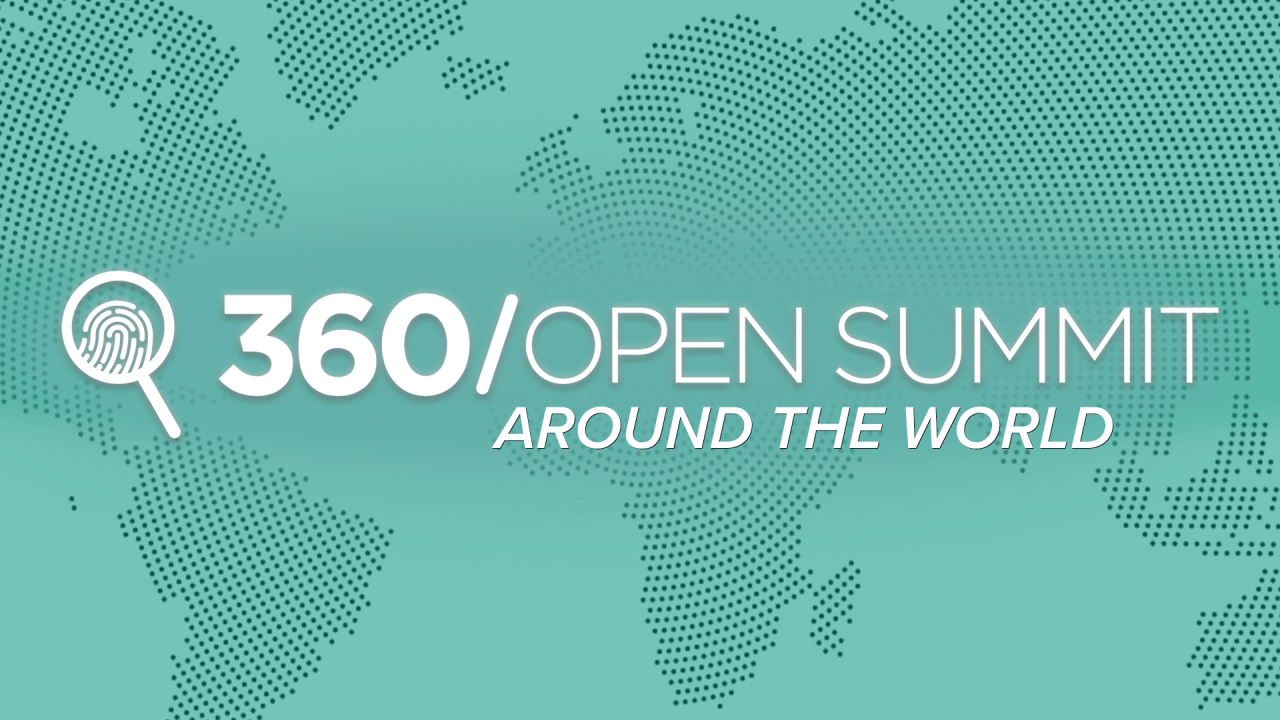
360/Open Summit: The World in Motion
The DFRLab hosts 360/Open Summit: The World in Motion on June 22-25 online.
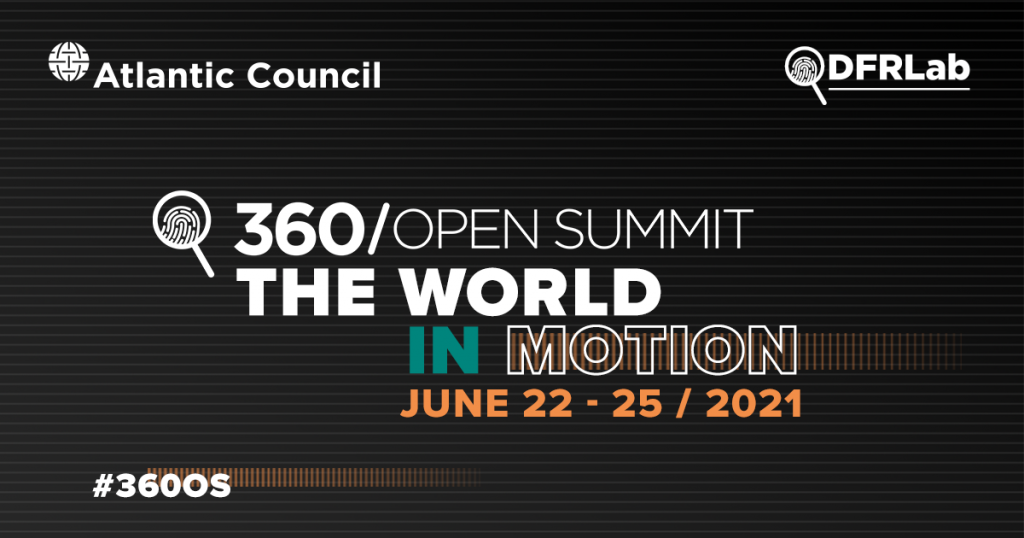
A conversation with Katherine Maher
Former Wikimedia CEO Katherine Maher discusses her experience leading one of the world’s largest and most trusted platforms, and the launch of the DFRLab’s new Democracy + Tech Initiative.
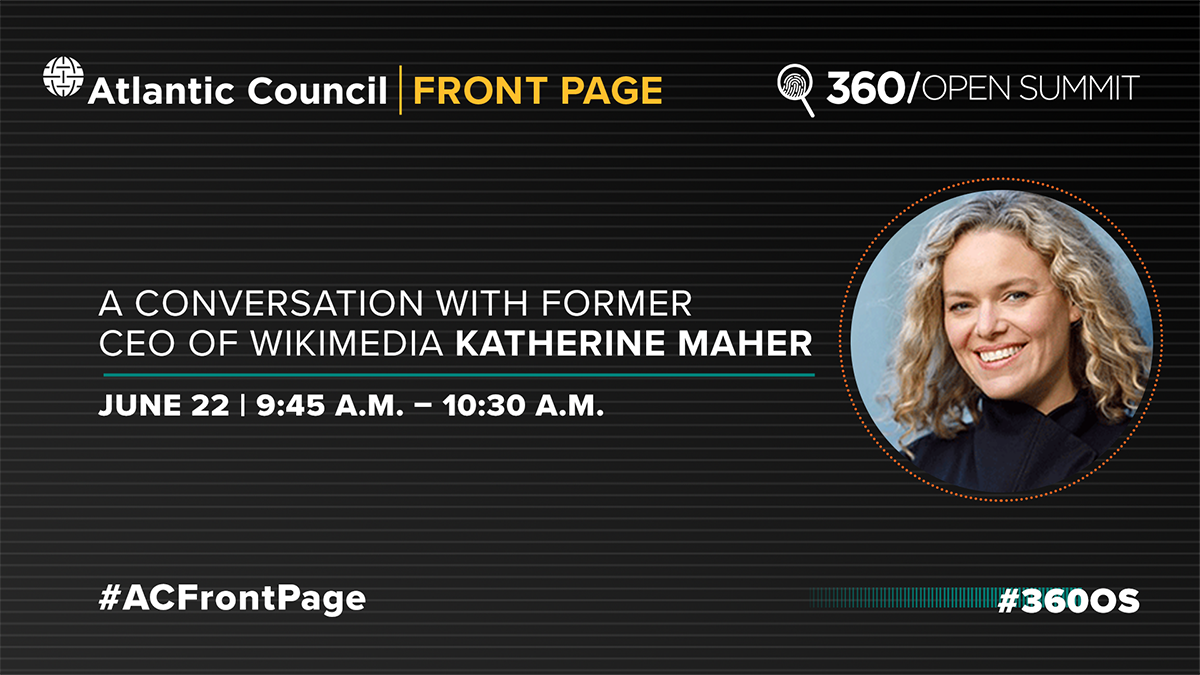

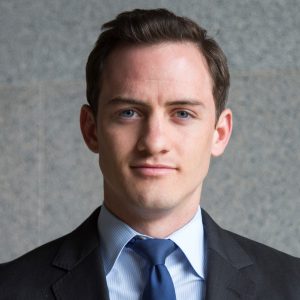
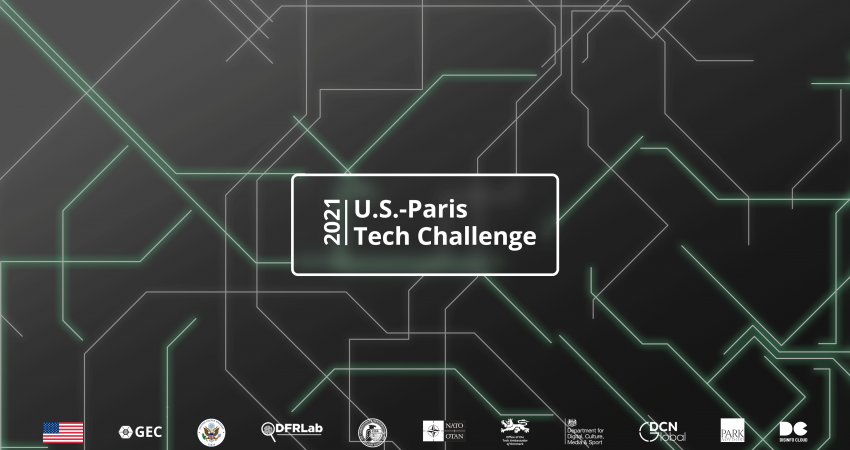
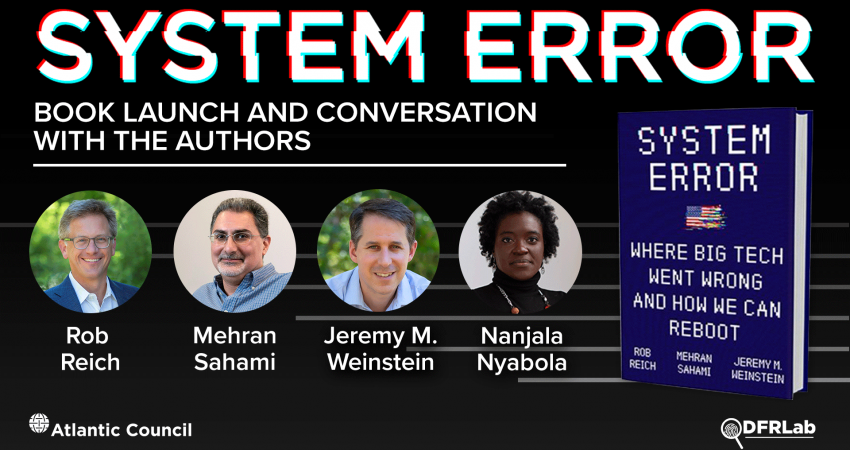

Follow @DFRLab on social media